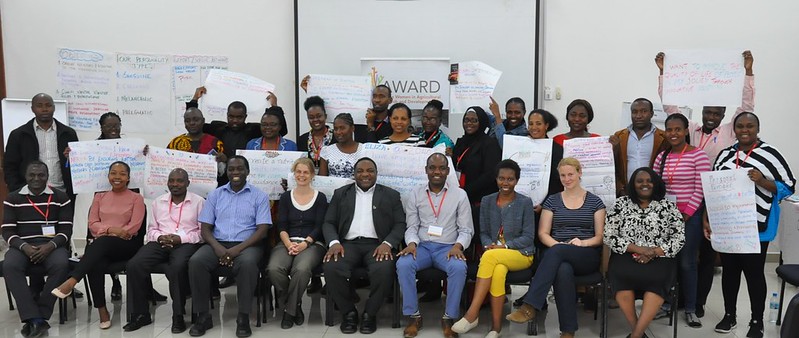
Mentoring is a proven and powerful driver for both career growth and institutional development. It provides a holistic approach to the career development goals of the mentee by focusing on the mentee’s whole life-work system. Where networks of mentors exist, it allows for access to knowledge and capacity building for the mentees and gives them access to global senior professionals.
Over the past decade, African Women in Agricultural Research and Development (AWARD) has invested in mentoring and fostering mentoring partnerships among African women agricultural scientists and agricultural research organizations and institutions across the continent. The transformation experienced by these actors in their personal lives and careers as a result of the mentoring has been awe-inspiring. The successes and statistics tell our story.
As reflected in our strategy, among AWARD’s core programmatic activities includes Gender Responsive Agricultural Research and Development (GRARD). The initiative seeks to catalyze transformative change in African agricultural research by supporting African research institutions and scientists to conduct more gender-responsive agricultural research. The first half of this year has seen AWARD scaling up its interventions on institutional transformation by implementing customized mentoring programs for the Federal University of Agriculture, Abeokuta (FUNAAB) and Nelson Mandela African Institution of Science and Technology (NM-AIST).
In May, we launched week-long transformative coaching for 48 selected staff members of FUNAAB. The session sought to forge a mentoring structure for the institution while empowering and building strong leadership skills for better management and improved leadership capacity.
Participants included the FUNAAB Vice-Chancellor, Professor Felix Salako, AWARD Steering Committee Vice-Chairperson and Deputy Vice-Chancellor, Prof Sanni Lateef and the Chairperson of the Nigerian Women in Agricultural Research and Development (NiWARD) country chapter, Professor Stella Williams.
In his opening remarks, Professor Salako underscored that gender inclusion is vital to addressing institutional growth and development. He emphasized that as a center for agricultural research, FUNAAB stands to benefit from the AWARD Training, which aims to strengthen their ability to deliver gender-responsive agricultural innovations.
Over the past decade, the AWARD Fellowship footprint has been largest in Nigeria, reaching more than 300 beneficiaries. Among these are 33 Fellows, Mentors and junior learning partners from FUNAAB who continue to catalyse transformative change in the institution. Further, 66 FUNAAB staff members are beneficiaries of different AWARD Training. The special mentoring program for FUNAAB is a unique contextualized capacity building which harnesses the skills and experience of past AWARD Fellows and Mentors from FUNAAB to scale AWARD’s institutional engagement. 2009 AWARD Fellow, Dr. Bola Petra Abdulsalam-Saghir, mentioned that her mentoring experience not only helped her build networks but also had ripple effects that have reflected in her professional career.
In July, we extended our interventions to Tanzania, where we delivered a similar customized mentoring intervention at NM-AIST. The intervention here seeks to establish mentoring relationships that will foster an environment where the junior scientists and students can gain and share knowledge for building and strengthening their journey in their career paths.
In her welcome remarks during the workshop, Professor Anna Treydte of the Africa Centre for Research, Agricultural Advancement, Teaching Excellence and Sustainability (CREATES), appreciated AWARD’s commitment to building the capacity of the scientists and emphasized the importance of intergenerational networks for knowledge transfer.
The institutionalized intervention promises to be beneficial to both institutions top management as they look to increase their research and leadership capacity and impact their country’s agricultural sector. The GRARD initiative approach holds a transformative potential to maximize the efficiency and effectiveness of African agricultural research and development by increasing the scale, scope, and sustainability of impact.
Click here for more highlights.
